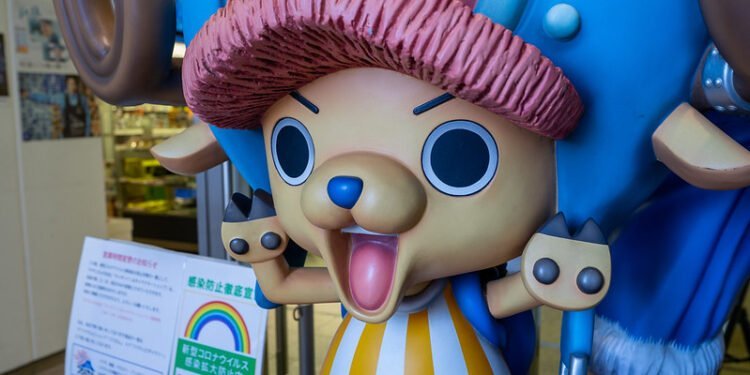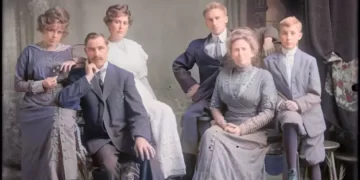The One Piece Character, Tony Tony Chopper, is a blue-nosed reindeer from Drum Island. After being abandoned by his reindeer herd because of his differences, he came under the wing of Dr. Hiriluk and Dr. Kureha who became parental figures. They raised him and trained him in to be a doctor of medicine. After eating the devil fruit Hito Hito no MI, he became embodied with the power to transform into human-hybrid form. After the death of Dr. Hiriluk, Chopper swore to become the best doctor he could and eventually joined the Straw Hat Crew as the ships doctor. Like much of the crew, he is in his teenage years which makes Travis Hirschi’s Causes of Delinquency an interesting lens through which to view the character of chopper.
If you are not familiar with the anime One Piece, then here are a couple of videos which give some idea of the character. If you are not familiar with anime at all then you may find this quite an unusual piece of entertainment. For everyone else, article continues below.
Travis Hirschi
Travis Hirschi focuses on crime and deviance in the form of social control theory which, in this case, argues that delinquency arises from feelings of disconnection from society. Travis Hirschi’s social control theory of crime argues people refrain from committing crimes due to various negative possibilities such as the costs of criminal behaviour monetarily, legally, and in terms of disapproval from peers and loved ones. He defines delinquency as:
defined by acts, the detection of which is thought to result in punishment of the person committing them by agents of the larger society
Hirschi also outlines four social bonds which bind people to society subsequently promoting conformity and preventing delinquency: attachment, commitment, involvement and belief. Let’s consider how these bonds relate to Chopper.
Attachment
As mentioned, Chopper was rejected by his original herd because of his blue nose and eating the Devil Fruit. The extent of rejection went as far as Chopper being attacked by the leader of the herd resulting in Chopper having a metal plate in his head to reattach a broken antler. He also lost his surrogate father Hiriluk when Hiriluk sacrificed himself to save Drum Island. This essentially left Chopper adrift with little social connections in terms of attachment.
From Hirschi:
it is not surprising that an image of the delinquent as not only physically but emotionally free of his parents has developed
There is a certain inevitability implied in this statement as if those who are without attachments are destined to become deviant. This is what is called determinism, an argument that presupposes that something is inevitable. Of course, there is nothing inevitable about this at all. Many people who have a lack of attachment go on to live perfectly good lives.
Commitment
Chopper has little commitment to conventional goals or norms of society, such as education, career or law as, well, pirates generally don’t do they? Further, given the nature of living a pirate’s life, the perpetual movement from island to island puts chopper in a position where he cannot commit to anything concrete outside of his friendships with the Straw Hat Crew.
Hirschi argues that delinquents are often less committed to conventional goals, activities, and pursuits. Despite the fact that Chopper has a strong commitment to his dream of becoming a doctor capable of curing any disease, it remains an unconventional pursuit, at least in the eyes of the World Government, and especially since Dr Hiruluk was also a rebel against the King of Drum Island. Thus, the kind of doctor that chopper wants to be could be seen as delinquent given that he is doctor for a pirate crew, not a conventional doctor of medicine, and from a lineage of opposition to power.
Involvement
Chopper is very involved in his role as a doctor for the Straw Hats and often spends time researching or treating the injuries of the crew but also of the people he comes into contact with. However, he may not be very involved in other activities or hobbies that are common among humans or reindeer. He also tends to isolate himself when he feels embarrassed or angry. Again, his perpetual travelling means he cannot settle within a given island or culture and cannot integrate into the daily life or norms of a steady life.
Hirschi claims that those who are less involved are much more likely to be delinquent as being involved in regular social life creates conditions where there is less opportunity to become an actor in deviant or delinquent behaviour. Further, the barriers that Chopper experiences, such as being mistaken for a raccoon dog, his feelings of shame, his life at sea, or his membership of a World Government proscribed group, can all lead to a lack of involvement.
Belief
Chopper has a strong belief in his friends and their ideals such as freedom, friendship and adventure. Further, given his dedication to being a doctor, a high regard for the conservation and sustaining of life would also constitute a belief. However, he may not share the same beliefs as other humans or reindeer regarding morality, justice or authority especially when juxtaposed with the ideals of the World Government.
He often questions or challenges the rules or customs of different places they visit which itself can be seen as deviant. The authoritarian nature of the World Government also means that Choppers values and ideals are by nature oppositional. From the World Government’s viewpoint, having strong ideals of friendship which manifests within a crew of pirates is, by its very nature, oppositional to World Government values or at least the government values that are espoused in public. Further, the World Government are known to have little regard for the sanctity of life.
Hirschi argued that belief reduces the likelihood of delinquency as it makes individuals more sensitive to the consequences of their actions and more respectful of the rights of others. Having a belief in the law was also considered a factor in the absence of delinquent or deviant behaviour. For this to be the case however, the law itself must be seen to be just otherwise there is a likelihood of oppositionality which would be framed as delinquent.
Criticism
According to Hirschi’s social control theory then, Chopper may be disconnected from society and delinquent because he does not have enough social bonds that make him conform to society’s expectations or values. However, this itself highlights some problems with the theory.
Firstly, viewers of this anime all know that Chopper is not deviant from a moral standpoint. Thus, to view him as deviant requires some form of relativity to an immoral normality. We know that, much like in real life, the World Government is corrupt and colludes with powerful pirate criminals. Yet, it is these people who set norms, expectations, and laws. Thus, only in the eyes of an immoral and corrupt government, could Chopper be seen as deviant.
This problematises Hirschi’s claim that delinquency stems from weak social bonds. It seems that the authority in a given society is excluded from the calculation of an individual resorting to delinquency. Chopper clearly experiences other factors which are clearly externally imposed factors such as the designation of pirate and the assumption that pirate equates to delinquent. This means that, in establishing this categorisation, the World Government has actually created the delinquency whereas Hirschi would argue that it has originated in the lack of social bonds.
Conclusion
To sum up then, Hirschi’s social control theory of deviance relies on the idea that a lack of social bonds and a disconnection from society leads to delinquency. Through applying this to the character of Chopper from the anime One Piece, we can see how this theory manifests. Criticisms showed that Hirschi did not include the possibility that delinquency may be the result of external factors as opposed to just simply a lack of social bonds.
References
Hirschi, T. (1969). Causes of delinquency. New Brunswick, N.J.: Transaction Publishers.









